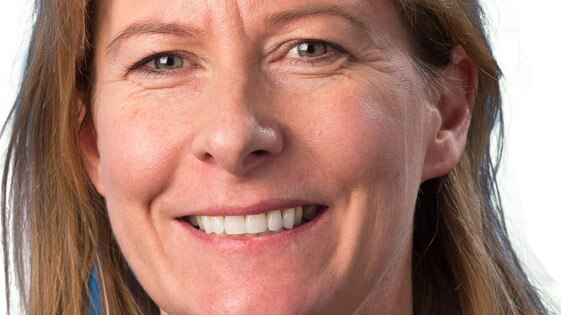Coronavirus: No evidence a curfew in isolation would be effective, court told, says Michelle Giles
The senior health bureaucrat who extended Melbourne’s now revoked curfew says there is no evidence the measure alone keeps coronavirus numbers down, a court has heard.

A senior Victorian Health bureaucrat has told a court there was no evidence a curfew in isolation was effective in stopping the spread of the coronavirus and has contradicted Premier Daniel Andrews’s claim it was introduced as an enforcement measure to help police.
Associate professor Michelle Giles, a senior medical adviser in the Department of Health and Human Services, said she had asked the government for evidence about the effectiveness of curfews before signing a public health order enforcing them, but the paper she was sent did not mention curfews in isolation or the benefits of a 5km travel limit.
Professor Giles acted briefly as deputy public health commander and signed public health orders involving the Melbourne curfew: “There is no evidence the curfew in isolation is effective, but I didn’t consider the curfew in isolation.”
Professor Giles said she disagreed with Mr Andrews’s comments that the curfew was introduced as an enforcement measure to assist Victoria Police. “I actually considered the curfew in relation to public health,” she said. “I don’t agree with those comments, particularly the law enforcement one.”
She said she felt a huge responsibility to make a considered decision and did not take signing the orders lightly.
The curfew was introduced on August 2 as a COVID-19 prevention measure and extended by Professor Giles from September 14, when it was relaxed from 8pm to 5am to 9pm to 5am.
On Thursday, Professor Giles said she wasn’t involved in drafting or discussions around the continued restrictions.
She said the public health team would assess the data before drafting recommendations to be endorsed by Chief Health Officer Brett Sutton before a summary was sent to key stakeholders, which included the Premier’s office and the crisis council.
She said she could have declined to sign the orders, despite Mr Andrews announcing the changes hours before she received them. “I always saw it as an option,” she said.
The court was told the Victorian Premier’s office made changes to public health directions that included varying the now-revoked curfew before they were signed by Professor Giles.
Emails between a lawyer for the Department of Health and Human Services and Professor Giles on September 13 were read out at a Zoom hearing at Victoria’s Supreme Court on Thursday.
The lawyer told Professor Giles that the “Premier’s office picked up on issues with directions” and would revise them before re-sending to the acting deputy Public Health Commander to sign.
Professor Giles said she would resign the stay-at-home order before asking what the issue was.
In another email that day, Professor Giles said she’d wait in the office until she received the updated version for resigning as well as again inquiring about the issue.
Under cross-examination by Marcus Clarke, who is representing cafe owner and Liberal Party member Michelle Loielo, Professor Giles said the emails showed her interest in knowing what the orders were before she signed them: “I think what this is saying is it’s important for me to know if there are any other changes to the directions.”
Ms Loielo, who has claimed her business suffered as a result of the curfew, is seeking to have the curfew declared unlawful.
In her affidavit released on Thursday, the widowed mother of three said she felt “a sense of dread and anxiety” whenever Mr Andrews spoke publicly.
Professor Giles said Professor Sutton had signed the order revoking the curfew on Sunday.



